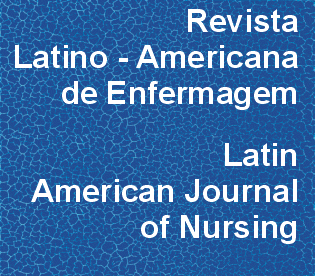Implante Coclear: la complejidad comprendida en el proceso de la toma de decisiones por la familia
DOI:
https://doi.org/10.1590/0104-1169.3044.2432Resumen
OBJETIVO: comprender los significados atribuidos por la familia a las etapas del proceso de la toma de decisiones para el implante coclear en el hijo. MÉTODO: investigación cualitativa, teniendo el Interaccionismo Simbólico y la Teoría Fundamentada en los Datos como los referenciales teórico y metodológico, respectivamente. El instrumento de recolección de datos fue la entrevista semiestructurada. Participaron del estudio nueve familias (32 participantes). RESULTADOS: déficit de conocimiento, dificultades en contextualizar beneficios y riesgos, y miedo, son algunos de los dificultadores de este proceso. Las experiencias provenientes de las interacciones establecidas con profesionales de salud, de otros usuarios de implante coclear y de sus familiares, fortalecen la toma de decisiones para el implante. CONCLUSIÓN: decidirse o no por el implante constituye en un proceso complejo, en que la familia necesita evaçiar las ganancias y pérdidas, experimentar sentimientos de responsabilidad y de culpa, además de superar la aversión a riesgos. Así, exige una cautelosa preparación y conocimiento de los profesionales que participan en esta intervención.Descargas
Los datos de descarga aún no están disponibles.
Descargas
Publicado
2014-06-01
Número
Sección
Artículos Originales
Licencia
Los derechos de autor son propiedad exclusiva de la Revista Latino-Americana de Enfermagem (RLAE), transferidos a través de la Declaración de Transferencia de Derechos de autor (que está en el formulario individual de declaración) firmada por los autores. Para el uso de artículos, RLAE adopta la Licencia Creative Commons CC BY-NC atribución no comercial (abstracto o código completo de licencia). Con esta licencia es permitido acceder, descargar (download), copiar, imprimir, compartir, reutilizar y distribuir los artículos, desde que para uso no comercial y con citación de la fuente, dando los créditos de autor a la Revista Latino-Americana de Enfermagem. En tales casos, no se necesita permiso de los autores o editores.Cómo citar
Vieira, S. de S., Bevilacqua, M. C., Ferreira, N. M. L. A., & Dupas, G. (2014). Implante Coclear: la complejidad comprendida en el proceso de la toma de decisiones por la familia . Revista Latino-Americana De Enfermagem, 22(3), 415-424. https://doi.org/10.1590/0104-1169.3044.2432



